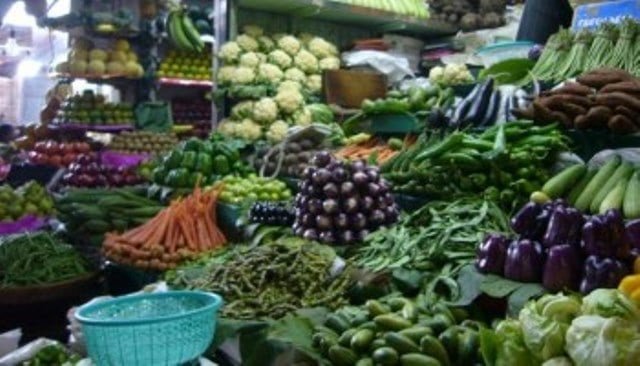Small vendors' business slumps
Questions raised over anti-encroachment drive that destroys livelihoods

As Punjab's anti-encroachment operation is ongoing in full swing, the mounting toll of demolished livelihoods is now compounded by a visible slump in economic activity across once-thriving markets, raising urgent questions about the balance between urban order and economic survival.
Initiated under Punjab Chief Minister Maryam Nawaz Sharif's directives, the drive has cleared sidewalks, roads and government land of thousands of informal shops and stalls. But in their absence, markets once alive with trading are now quiet, leaving both ordinary vendors and customers grappling with reduced income and rising prices along with an uncertain future.
As per rough estimates made by different trade bodies and small vendors, who accounted for nearly 30% of daily retail transactions in major cities, the foot traffic in Lahore's historic Anarkali Bazaar alone has decreased by approximately 40% due to the anti-encroachment campaign.
"Earlier, these lanes were packed, now half of the stalls are gone and customers also don't bother coming," said Amir Hussain, who had sold spices at a sidewalk cart for 15 years.
His cart was dismantled last week and his daily earnings dropped from Rs3,000 to almost zero. "Even those with legal shops are suffering; the market's soul has been ripped out."
With this sudden removal, supply chains have been fractured. In Rawalpindi's Raja Bazaar, wholesale vegetable seller Rizwan Khan said, "Street vendors bought stocks from us daily. Now, our sales are down 60%. If this continues, we will have to shut down our business."
Many argue that informal vending zones served as economic lifelines for low-income communities. In Faisalabad, fruit seller Samina Bibi said that her customers were maids, drivers and labourers who couldn't shop in expensive markets. "A plate of sliced fruit for Rs20 was their only luxury. Now, even that is gone."
The All Pakistan Anjuman-e-Tajiran claims the crackdown has disrupted an ecosystem supporting millions. "These vendors were not just sellers; they were customers too. They bought goods from wholesalers, paid for deliveries and supported tea stalls and cart repairmen. The ripple effect is massive," said the trade body's spokesperson. "When daily-wage earners lose income, they stop buying even essentials; our domestic sales have dipped."
Meanwhile, prices in formal markets are creeping up. In Lahore's Liberty Market, vegetable prices have risen by 15% to 20% since the drive began.
"Street vendors sold farm produce cheaper because they had to pay no rent. Now, middlemen control supplies," said shopper Akther Hussain. "The poor are being hit twice, first by losing jobs, then by inflation," he added.
Amid the disturbance, many question why the operation disproportionately targets small vendors rather than powerful land grabbers.
"Why there is no crackdown on illegal plazas or housing societies built on state land? They demolish the poorest first," said Ali Shah, whose snack cart in Multan was destroyed. "For years, police and municipal staff took bribes to let us operate, now they are following orders, but what about their corruption?" he asked.
While the public at large welcome clearer streets, they have some sympathy for those vendors who are working hard to survive in these inflationary times.
"Encroachments promoted lawlessness. Now, there's space for proper markets to grow," argued Lahore entrepreneur Fiaz Ahmed. It was becoming increasingly tough for many families to enter these markets and shop freely due to massive encroachments; "I observe many families shifted towards mega malls or online stores for shopping," he said.
According to Ahmed, clearing land is easy but replacing the economic role of informal vendors is not; there must be a way out, as in the case of roadside carts which the provincial government is offering to many fruit and vegetable vendors.
Authorities should act swiftly to establish model markets including offering subsidised stalls and microloans for the affected vendors. "If the government doesn't act swiftly to rehabilitate these workers, poverty and crime will rise," he added.



















COMMENTS
Comments are moderated and generally will be posted if they are on-topic and not abusive.
For more information, please see our Comments FAQ